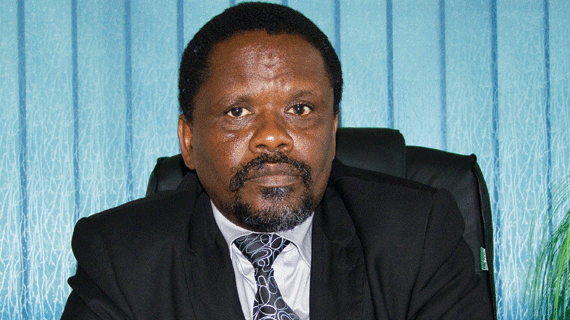
SECTION 8 of SI 164 of 1913 which local authorities have been relying on for disconnecting water supplies reads: “Council may, by giving 24 hours’ notice in writing and without prejudicing its right to obtain payments for water supply to its consumer, disconnect supplies to the consumer; if he shall have failed to pay any sum which, in the opinion of the council, is due under these conditions or the water bylaws.”
In his ruling on the water issue, High Court judge Justice Chinembiri Bhunu lambasted the tendency by local authorities of disconnecting water supplies without approaching the courts. This action was tantamount to taking the law into their own hands, as well as a contempt to the Constitution of Zimbabwe.
He premised his ruling on Section 77 of the Constitution, which makes it compulsory for every person to have right (or access — own emphasis) to safe, clean and portable water and sufficient food.
The State is under the same provisions instructed to put in place reasonable legislative and other measures, within the limit of resources available to it, to achieve the progressive realisation of this right.
In the circumstances, one needs to spread the net even wider.
In a situation where a local authority has installed prepaid water meter and the consumer fails to buy water in advance, who would be at fault for not supplying water? Food and safe, clean and portable water are human rights, as alluded to earlier on.
When members of a household cannot raise money to buy food, it is the retailer’s duty to supply food stuffs to such a family for free.
Part of Section 8 of SI 164 of 193 talks of council’s right to demand payment for water.
- Chamisa under fire over US$120K donation
- Mavhunga puts DeMbare into Chibuku quarterfinals
- Pension funds bet on Cabora Bassa oilfields
- Councils defy govt fire tender directive
Keep Reading
On the other hand, the Constitution emphasises the need to uphold the right to safe, clean and portable water to every person.
What emerges from this discourse is the realisation that in this new jurisprudence, it is no more business as usual. Justice Bhunu’s ruling, therefore, is a wake-up call to everyone, especially government ministries, departments and local authorities, to name a few.
There is urgent need to align all pieces of legislation to the Constitution.
To avoid this piecemeal repeal of all out-of-step Acts, the Justice, Legal and Parliamentary Affairs ministry may assist by invoking the general amendment of laws route.
It is interesting to know how many out of 300 laws which had been identified as candidates for general amendment have been sanitised to date. The remaining 100 laws which needed specialised attention are also to be actioned with speed.
However, this may be a mammoth task for the parent ministry, hence the need for all stakeholders to be proactive by way of identifying all out-of-step laws and forwarding them for either repeal or amendment.
Section 2 of Chapter I of the Constitution is very clear in that, any law, practice, custom or conduct inconsistent with it is invalid to the extent of the inconsistency.
The general amendment of laws provisions can simply be drafted to the effect that all laws that are out of step with the Constitution are hereby amended or repealed as the case may be in terms of Section 2 of Chapter I of the Constitution.
Before attacking Justice Bhunu’s ruling on water disconnections, one has to take into consideration a number of issues.
For example, the bylaw in question, was passed in 1913. What was the political landscape then, who was it meant for?
“A wake-up call” — most of our bylaws and other statutory documents are archaic. These documents are anti-black in tone and thrust.
Thirty-four years after independence and we are still referring to statutes that are 101 years old.
This leaves egg on the face of all who are responsible for updating and drafting legislation, be it Parliament, government ministries and departments as well as local authorities.
A laissez faire attitude had crept in, as no one bothered to revisit statutes for purposes of updating them.
The Copac team that paved the way for this elaborate and emancipating Constitution is held in high esteem for its unwavering zeal to see the project through despite the hurdles and heartaches they went through.
In the circumstances, it will be unfair to read the water disconnection judgment in isolation.
It is to be understood in the context of the political terrain then prevailing in 1913.
If anything, the judgment is educative and instructive. The onus is on stakeholders to sanitise all the offending laws to avoid being attacked by courts for contempt of the Constitution.
Moses Tsimukeni Mahlangu is the general-secretary for Zimbabwe Urban Councils Workers’ Union. He is a labour consultant and arbitrator. Feedback: Email: [email protected]










